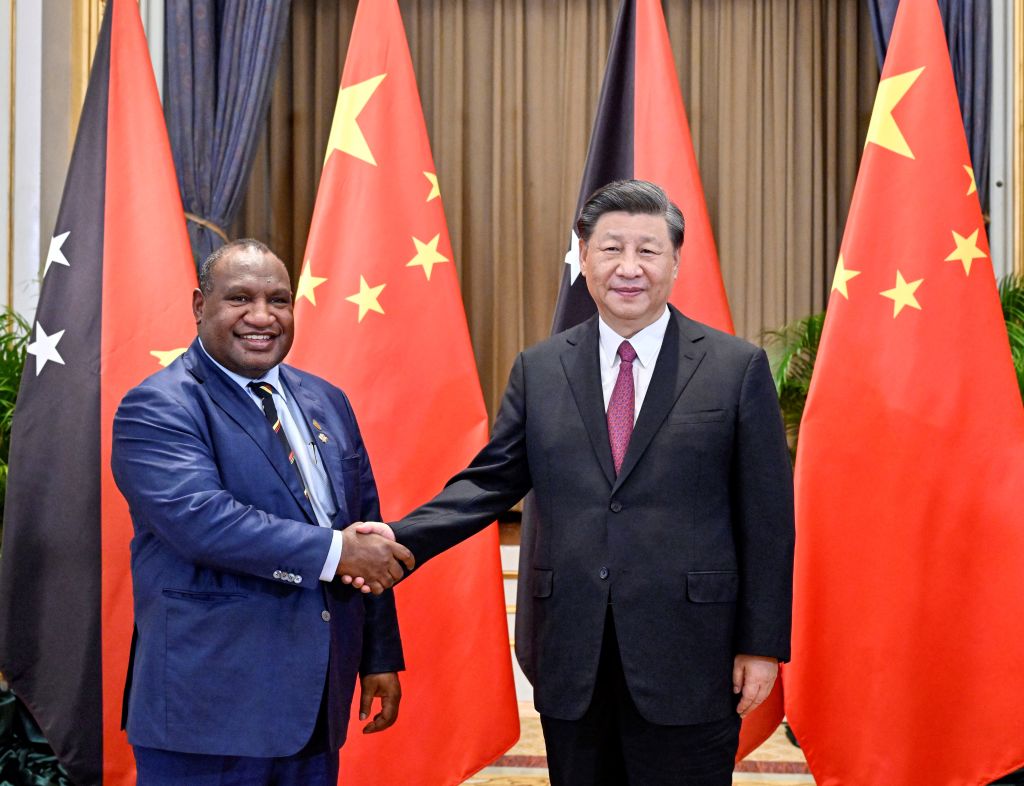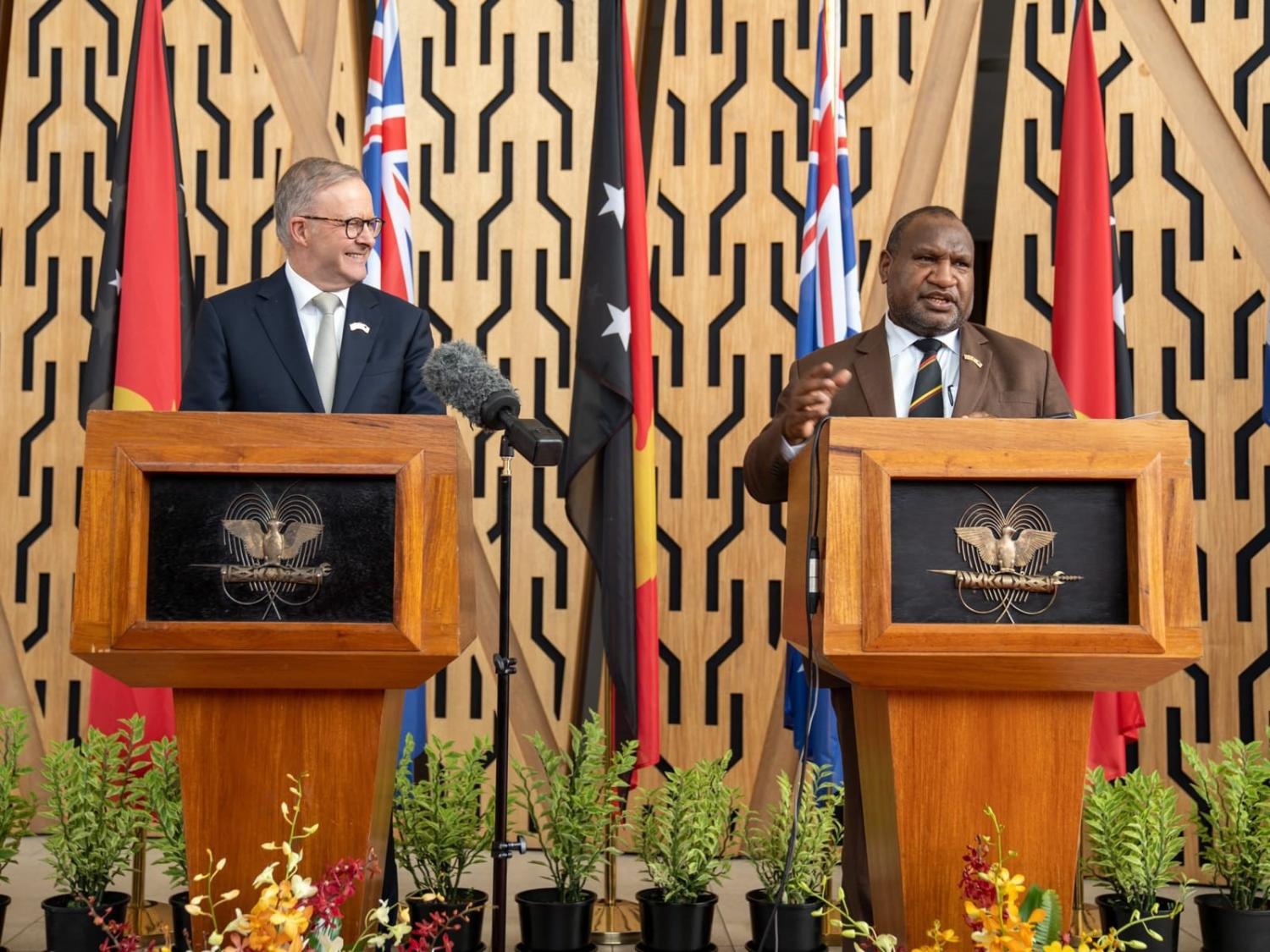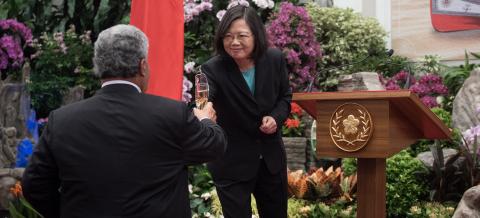For James Marape, Papua New Guinea’s Prime Minister, strengthening trade appears to be his main focus. Marape has said previously that PNG is still an emerging economy and cannot afford a standoff between its major trading partners, Australia and China.
Anthony Albanese, Australia’s PM, paid a two-day visit to PNG earlier this month. His visit included an address to parliament, becoming the first foreign leader to do so in PNG’s 47-year history.
Much of the talk around Albanese’s visit centred on a proposed bilateral security treaty. Such a deal would follow China’s security pact with Solomon Islands in April last year. The United States has also stepped in and has signalled a possible defence cooperation agreement with PNG in the future.
For his part, Albanese maintains the economic and security interests of Australia and PNG are inseparable. However, not everyone is convinced. PNG’s opposition leader Peter O’Neill described Albanese’s visit and his address to parliament as “disappointing”. He stated the “China agenda” was pushed to leverage more assistance from Australia, and avoided more pressing issues such as high inflation and high unemployment rates.
While Australia moves on security, Marape has announced he will visit China later this year, to potentially sign a new free trade agreement (FTA) that has been in the works since at least 2018. This follows a meeting between Marape and China’s President Xi Jinping at the APEC summit last year, where increasing China’s involvement in trade and commerce was discussed.

The FTA with China will build on a seafood export deal signed in 2020, which enabled 35 seafood companies to export directly to China, and came with 31 cold storage facilities, purse seine vessels, prawn trawlers and two carriers.
China is making headway in trade relations with PNG. A few days before Albanese’s visit, PNG announced it would be closing its trade office in Taiwan. This happened after the incident of a PNG diplomat physically assaulting his wife and a restaurant employee. When closing the office, PNG’s foreign minister also stated PNG derives little economic benefit from trade with Taiwan. Beijing has supported the trade office closing, stating that “the one-China principle is an overriding trend that enjoys popular support of the international community”.
While Australia remains PNG’s largest trade partner, trade with China has grown significantly over the past decade. In 2021, PNG’s trade with Australia was valued at A$4.7 billion; PNG trade to China value was the second highest at A$3.4 billion.
Beyond trade, China is looking to support PNG’s domestic economic policy, including the push to downstream processing. There appears to be scope for investing in sectors such as timber and fisheries. Other boons for PNG would include establishing a direct flight from Port Moresby to Shanghai, targeting the 100 million Chinese tourists that leave China every year.
With China’s growing interest in PNG, Marape’s hand in shaping bilateral relations with Australia has certainly strengthened. Marape has mentioned other issues in the relationship that need to be “tidied”. Two such issues were easing visa requirements, and stronger business-to-business relationships, which Marape says has felt more beneficial to Australia than for PNG in the past.
Regardless of China’s engagement with PNG, Australia remains PNG’s most important bilateral partner, leading in trade, aid, and more recently, in budget support. Though Australian aid ranged from A$400 million to $600 million in the past decade, budget support has increased steadily since 2019 to total A$2.4 billion.
For Australia, providing more budget support is good. Conditions tied to the budget support have yielded fruit, with the International Monetary Fund’s recent country report recording satisfaction with the fiscal reforms PNG has achieved under the IMF’s staff monitored program.
In his speech to parliament, Albanese also mentioned increased support to improve the bio-security regime to enable farmers and producers access international markets. This aligns with the constant PNG government refrain of increasing agricultural exports to overseas markets.
PNG can also expect to see Australia receive more seasonal workers. Seasonal workers have already increased from around 100 to more than 900 in 2022, and this program is flagged to expand beyond the agriculture sector. Marape has also mentioned he plans to increase the number of Papua New Guinean skilled workers to 8,000 from the 1,000 or so in Australia at present.
As PNG asks for more, Australia can use its various forms of assistance to also push for reforms within the country. And 2023 is the best year to do this. The Marape government has shown it is open to reform, is protected from votes of no confidence till 2024, and holds the numbers necessary to pass legislation in parliament. Further, Marape’s party dominates cabinet, making it the driving force in policy making.
Australia still leads all of PNG’s other bilateral partners in trade, commerce, and budget support, among other areas. There is scope for Australia to expand these different pathways to ensure PNG, as Albanese maintains, is an equal partner in its relationship with Australia.

